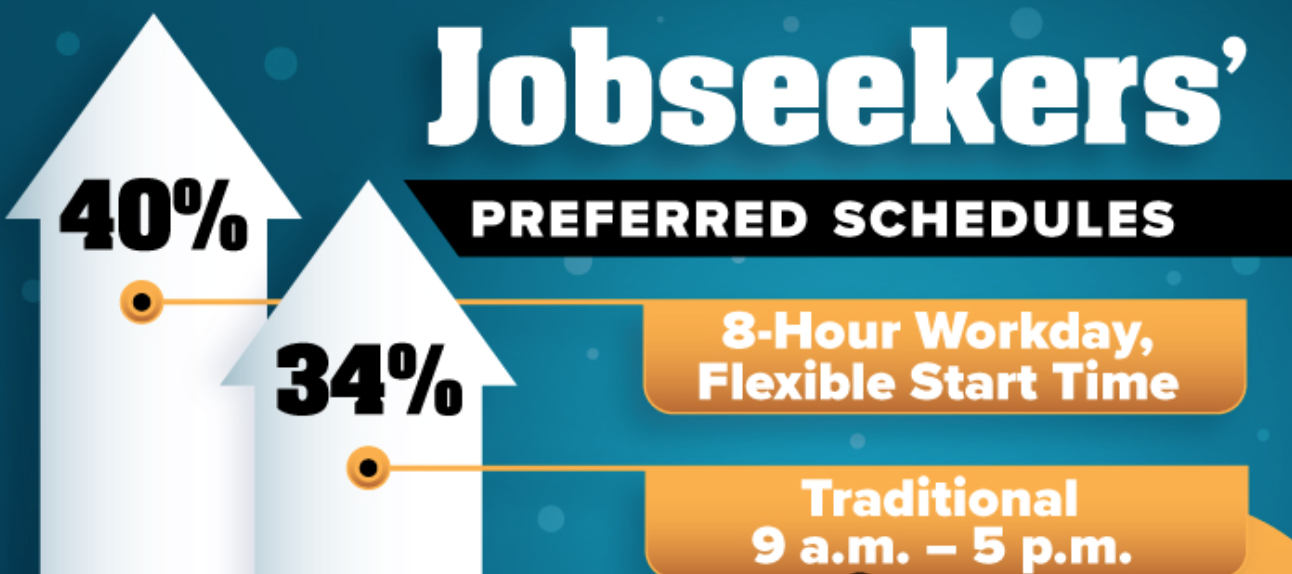American jobseekers and salons may be rethinking the traditional 40-hour work week as long as productivity remains at, or exceeds, current levels.
This is according to a recent survey from The Harris Poll commissioned by Express Employment Professionals.
When given the option of working an 8-hour workday (but flexible start time), traditional 9 a.m. to 5 p.m. or a compressed schedule such as 10 hours per day for 4 days a week, jobseekers most commonly pick an 8-hour day with a flexible start time (40%). Nearly 1 in 5 (18%) would prefer a compressed schedule.
And, if given the ability to design their own work schedule (i.e., working non-traditional hours for the same pay), most feel they would be more productive (56%) or they would have about the same level of productivity (39%).
And it appears that companies may also be embracing the idea of non-traditional work schedules.
More than 9 in 10 hiring managers (94%) report employees at their company are productive—with nearly half (48%) saying they are very productive currently. And, if given the ability to design their own schedules, hiring managers feel employees would have about the same level of productivity (53%) or even be more productive (35%).
Ultimately, it appears 40-hour work weeks are not necessarily needed to have a productive workforce. And, two-thirds of jobseekers (66%) agree they will soon be a thing of the past.
However, there still appears to be some hesitation in companies offering this amount of flexibility.
Three-quarters of hiring managers (75%) say they have some concerns about their company offering flexible work hours, including decreased productivity (30%), increased distractions (29%), delayed communications (28%) and an inability of employees to collaborate (28%).

